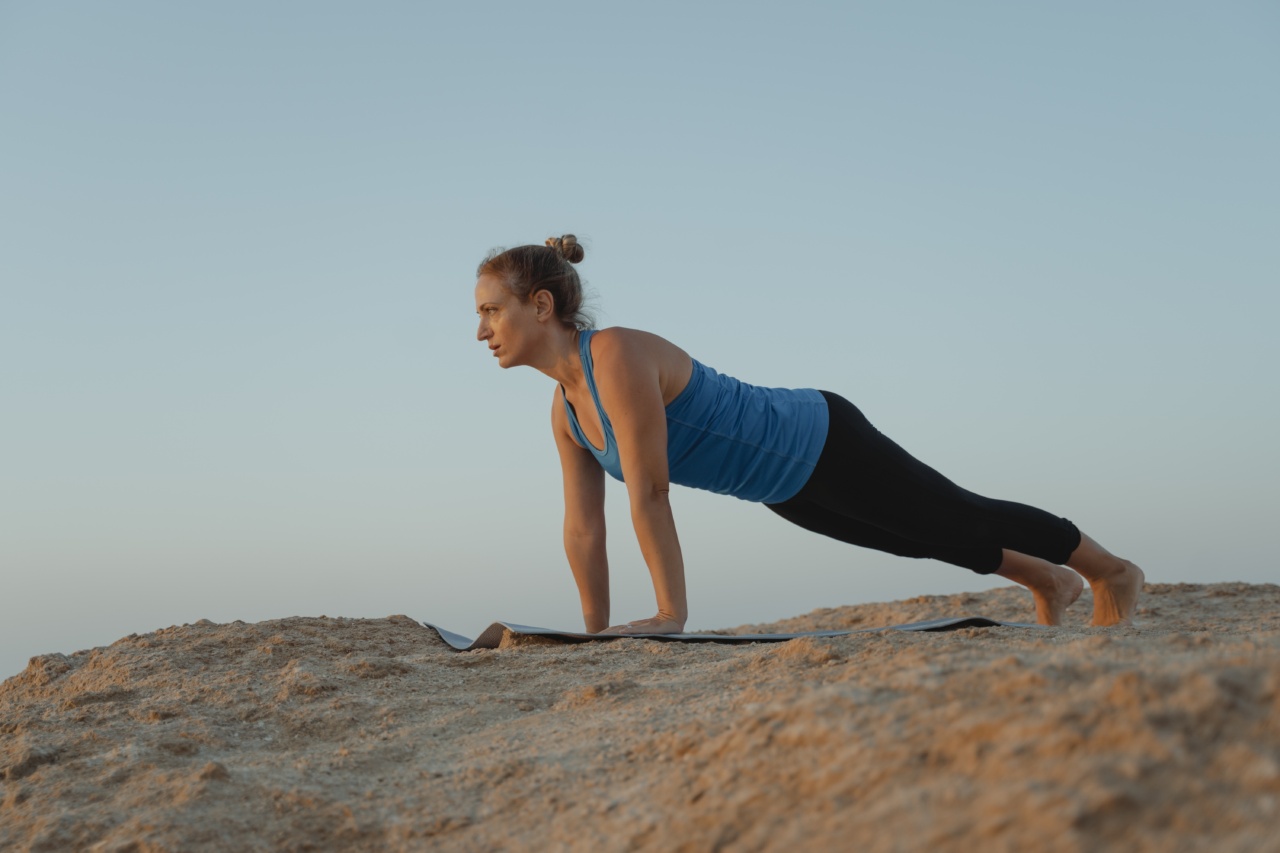Exercise is not just about staying fit or losing weight. It holds the key to longevity, helping us live longer and healthier lives. Regular physical activity has been proven to have numerous benefits for our overall well-being, both physical and mental.
In this article, we will explore why everyone should be incorporating exercise into their daily routine and how it can contribute to a longer, happier life.
The Science Behind Longevity and Exercise
Over the years, numerous scientific studies have provided compelling evidence that regular exercise can significantly increase our lifespan. Here are some key findings:.
1. Slowing Down the Aging Process
As we age, our bodies undergo various changes that can lead to physical and cognitive decline. However, engaging in regular exercise has shown to slow down the aging process and help maintain our physical and mental capabilities.
It improves cardiovascular health, strengthens muscles and bones, and enhances brain function. By exercising regularly, we can potentially add years to our lives while maintaining a youthful vitality.
2. Preventing Chronic Diseases
Leading a sedentary lifestyle is a major risk factor for chronic diseases such as heart disease, diabetes, and certain types of cancer. Engaging in physical activity on a regular basis can significantly reduce the risk of developing these conditions.
Exercise improves blood circulation, regulates blood sugar levels, boosts the immune system, and reduces inflammation – all of which contribute to preventing chronic diseases.
3. Strengthening the Immune System
Our immune system plays a vital role in defending our bodies against diseases and infections. Regular exercise has been shown to enhance immune function, making us more resistant to illnesses.
It stimulates the production of antibodies and improves the circulation of immune cells, helping us stay healthier and recover faster when we do get sick.
4. Boosting Mental Health and Cognitive Function
Exercise not only benefits our physical health but also has significant effects on our mental well-being. It releases endorphins, also known as “feel-good” hormones, which reduce stress and anxiety while promoting a positive mood.
Furthermore, regular physical activity has been linked to improved cognitive function, memory retention, and overall brain health.
5. Weight Management and Metabolism
Maintaining a healthy weight is crucial for longevity. Exercise helps burn calories, build muscle mass, and increase metabolism, making it easier to achieve and sustain a healthy weight.
By incorporating exercise into our routine, we can prevent obesity-related health issues and improve our overall quality of life.
How to Incorporate Exercise into Your Daily Routine
It’s never too late to start reaping the benefits of exercise. Whether you’re new to physical activity or already lead an active lifestyle, here are some tips to help you incorporate exercise into your daily routine:.
1. Find Activities You Enjoy
Exercise doesn’t have to be boring or monotonous. Engage in activities that you genuinely enjoy, whether it’s dancing, swimming, hiking, or playing a sport.
When you find pleasure in what you do, it becomes easier to stay motivated and consistent with your workouts.
2. Start Slow and Gradually Increase Intensity
If you’re new to exercise or have been inactive for a while, it’s important to start slowly and gradually increase the intensity of your workouts. This allows your body to adapt and reduces the risk of injuries.
Over time, you can challenge yourself with more intense activities and longer durations.
3. Make it a Habit
Consistency is key when it comes to exercise. Set aside specific days and times for physical activity, just like any other important appointment.
Treat it as a non-negotiable part of your routine, and soon it will become a habit that you prioritize without much thought.
4. Mix Up Your Routine
While consistency is vital, it’s also beneficial to mix up your exercise routine to keep things interesting. Try different types of exercises, alternate between cardio and strength training, or join group fitness classes.
This not only prevents boredom but also challenges different muscle groups and improves overall fitness.
5. Set Realistic Goals
Setting realistic and achievable goals is essential for staying motivated and tracking your progress. Start with small milestones and gradually work towards bigger ones.
Whether it’s increasing your daily step count or completing a full marathon, having goals gives you something to strive for and celebrate along the way.
6. Make it Social
Exercise can be a great way to connect with others and make new friends. Consider joining a sports team, fitness class, or exercise group in your community.
Exercising with others not only provides support and accountability but also adds an element of fun and enjoyment to your workouts.
7. Listen to Your Body
While regular exercise is essential, it’s equally important to listen to your body and give it the rest it needs. Overtraining can lead to injuries, fatigue, and burnout.
If you feel pain or excessive fatigue, take a day or two off, and allow your body to recover. Rest and recovery are integral parts of any exercise routine.
Conclusion
The evidence is clear – exercise is a vital component of a long and healthy life.
It offers numerous benefits, including slowing down the aging process, preventing chronic diseases, boosting the immune system, improving mental health, managing weight, and enhancing overall well-being. By incorporating exercise into our daily routines and making it a lifelong commitment, we can significantly improve our chances of living a longer, happier, and more fulfilling life.































